Politics of Indian propaganda regarding Bangladesh

Ever since the fall of the Bangladeshi dictator Sheikh Hasina in the student-citizen uprising of July-August, Indian news outlets and social media platforms have been spreading various types of disinformation about the persecution of religious minorities in Bangladesh. The disinformation includes portraying attacks on Awami League (AL) leaders as attacks on Hindus, arson attacks on AL offices as burning of temples, spreading images of past attacks or fires as images of recent events etc.
According to an investigation by Rumor Scanner, a Bangladeshi fact-checking organisation, as many as 49 Indian media outlets spread at least 13 false reports about Bangladesh between August 12 and December 5, 2024. Out of this, Republic Bangla has propagated a maximum of five rumours. The Hindustan Times, Zee News, and Live Mint each spread three false reports. Meanwhile, Republic, India Today, ABP Anand, and Aaj Tak each broadcasted two false reports. The remaining 41 media outlets spread one false report each.
The rumours spread by these Indian media, according to Rumor Scanner, included: a fake letter from Sheikh Hasina after her resignation; a video of a Muslim man falsely claimed as Hindu during a search for his son; false reports about Bangladesh's Chief Adviser Muhammad Yunus's health and location; baseless claims of withdrawal of bans on militant groups; arms smuggling via a ship from Pakistan; misrepresentation of lawyer Saiful Islam's murder; alleged ban on Indian TV channels; idol immersion in India misrepresented as a reaction to attacks on Hindu idols in Bangladesh; an alleged attack on a Shyamoli Paribahan bus from India; and false UK travel advisories for Bangladesh.
The political motive behind Indian propaganda on the allegations of minority persecution in Bangladesh can be understood by looking at the statistics of attacks on minorities during the previous Awami League government led by Sheikh Hasina. As many as 3,679 attacks on the Hindu community took place in the nine years, between January 2013 and September 2021, according to a compilation of data from the annual reports of the human-rights organisation Ain o Salish Kendra (ASK) during that period. The attacks included vandalism and setting fire to 559 houses and 442 shops and businesses of the Hindu community. At least 1,678 cases of vandalism and arson attacks on Hindu temples, idols and places of worship were also reported in the same period.
Recent ASK data shows the number of attacks on minorities in 2022 and 2023 was 12 and 22, respectively, and between January to July 2024, there were 28 such attacks. The attacks are random in nature, influenced by various local and national political and economic factors. For example, during the first six months of 2024 when Sheikh Hasina was in power, attacks on minorities in January, February and March were 10, seven and four, respectively, while incidents of attack in April, May and June were zero, three and three, respectively. It must be noted that news reports are one of the sources of ASK data.
After the current interim government assumed responsibility, there were 10 and 11 attacks on minorities in September and October 2024, respectively, based on ASK statistics. A year ago in September and October 2023, there were eight and three attacks. But three years ago, in just three days of October 2021, while Hasina was in power, 70 puja venues, 30 homes and 50 shops were vandalised, torched and looted in different parts of the country. The Hindu community faced the highest number of attacks in 2014; as many as 761 Hindu homes, 193 businesses and 247 temples and places of worship were attacked that year.
Therefore, attacks on minority groups in Bangladesh have not started suddenly after the fall of Sheikh Hasina. Over the years, various motives—from land grabbing to local political conflicts and even posts about religion on Facebook—led to attacks on the Hindu community and sometimes other marginalised groups in Bangladesh. Of course, these are very sad and unacceptable incidents and many Bangladeshis are fighting and protesting against these attacks, just like many Indians protest attacks on minorities in their country. However, an important difference between the situation in Bangladesh and India is that there is no communal political party in power in Bangladesh like India's Bharatiya Janata Party (BJP) which itself is accused of patronising communal violence.
Now the question is, why have the Indian Hindutva groups, engaged in attacking and torturing the minority population in their own country because of communal hatred, suddenly become so agitated about the allegations of minority persecution in Bangladesh? What was their reaction when the Hindu community was regularly attacked during Sheikh Hasina's regime? Did they attack the High Commission of Bangladesh in India then as they recently did in Agartala? Did they stop the export of onions and potatoes to Bangladesh and urge the United Nations to send peacekeeping forces to Bangladesh?
In fact, all this is being done for political gain by creating communal tension. On the one hand, the Indian ruling class cannot accept the painful reality of losing dominance over Bangladesh after Hasina's fall. India's various strategic interests such as road, sea and rail transit through Bangladesh, using the Bangladeshi seaports, hydropower transmission from their northeastern to the southern, western and northern regions, economic zones, businesses in the energy sector etc are now facing uncertainties. On the other hand, BJP and its affiliated organisations are carrying out anti-Bangladesh propaganda in a planned manner to portray themselves as the protectors of the Hindu community.
A statement issued by the Association for Protection of Democratic Rights (APDR), a human rights organisation of West Bengal, on December 1 is important to understand the political motive behind this. The statement read "the Indian government or the BJP has no moral right to say anything about the oppression of minorities in Bangladesh. Minority Muslims, Christians, and Buddhists are being persecuted continuously in India. Dalits and tribal people are also suffering. Just a few days ago, the Uttar Pradesh police shot dead six people of the minority community in Uttar Pradesh's Sambhal. Many Muslim political leaders and social activists including Abu Bakr, Umar Khalid, Gulfisha Fatima, Sharjeel Imam have been put in jail. By taking away OBC reservation, bringing waqf bill, making uniform civil rules, and digging up temples under mosques, many rights of minorities have been or are being taken away. Thousands of minority families have been displaced by bulldozers in Uttar Pradesh and Assam."
That's why, the APDR stated that the Indian government's statement about protecting the right of expression of minorities in Bangladesh is nothing but crocodile tears. The Modi government has no right to demand equal rights for minorities in other countries by turning minorities into second-class citizens at home. This is just an attempt to spread political dominance over Bangladesh and create opportunities for unfair interference.
People of both countries should be aware and careful about this Hindutva agenda of the BJP and its affiliates. Meanwhile, communal attacks in Bangladesh must not be justified just because India's minority population is being attacked or because Hindus were attacked during Hasina's tenure in Bangladesh. People, political organisations and the government of post-Hasina Bangladesh have the responsibility to bring down the attacks on all religious and ethnic minorities, including Hindus, to zero, ensure that the attackers are brought to book and given exemplary punishment.
Furthermore, the government should take the initiative to debunk every kind of misinformation propagated by the Indian media and communicate it to both Indian and International media. For this, a special monitoring team can be formed to investigate each incident through local and foreign independent fact-checkers and bring out the real facts. Most importantly, unity and solidarity should be enhanced with the secular and democratic people and organisations of India who are fighting against the communal politics.
Kallol Mustafa is an engineer and writer who focuses on power, energy, environment and development economics. He can be reached at [email protected].
Views expressed in this article are the author's own.
We welcome your contributions and analysis of global events, and responses to our articles. To submit articles to Geopolitical Insights, please send an email to [email protected].
Follow The Daily Star Opinion on Facebook for the latest opinions, commentaries and analyses by experts and professionals. To contribute your article or letter to The Daily Star Opinion, see our guidelines for submission.

 For all latest news, follow The Daily Star's Google News channel.
For all latest news, follow The Daily Star's Google News channel. 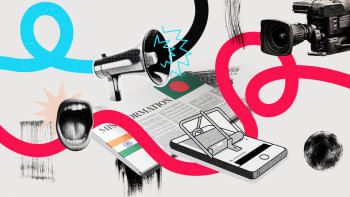
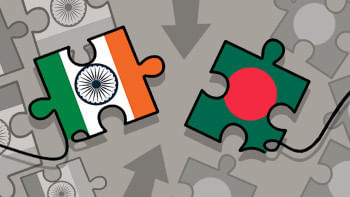
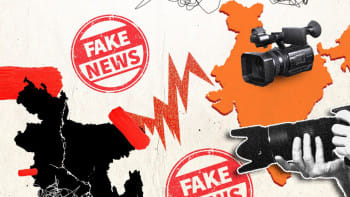


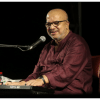



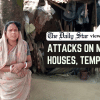

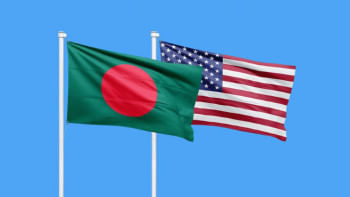
Comments